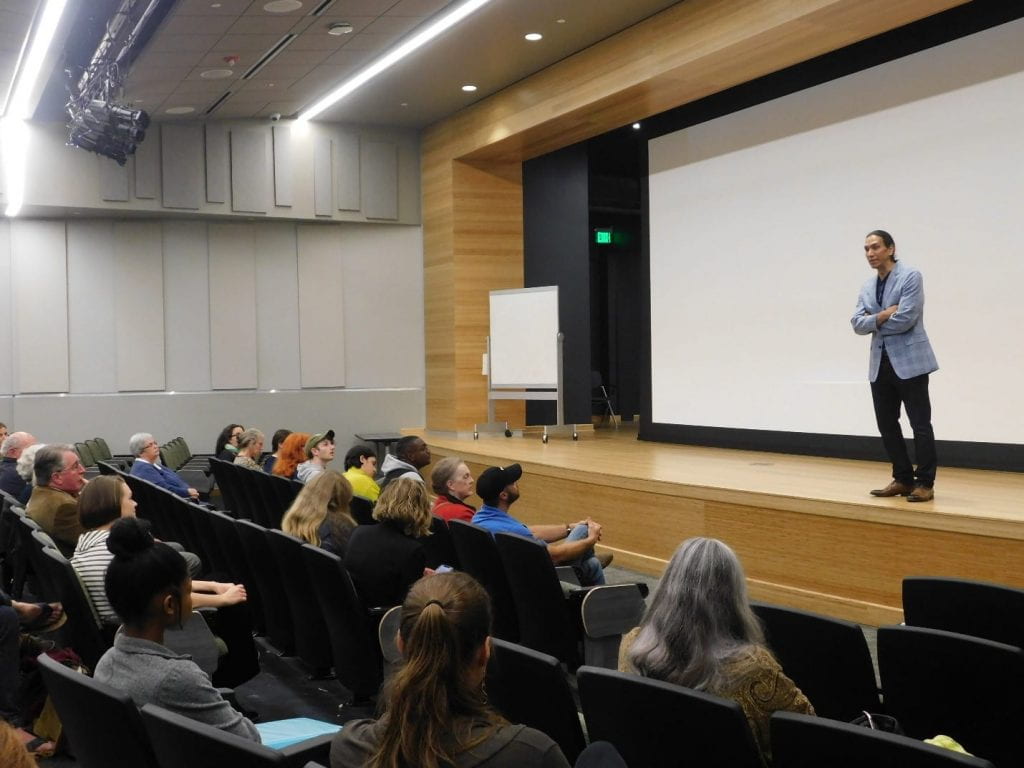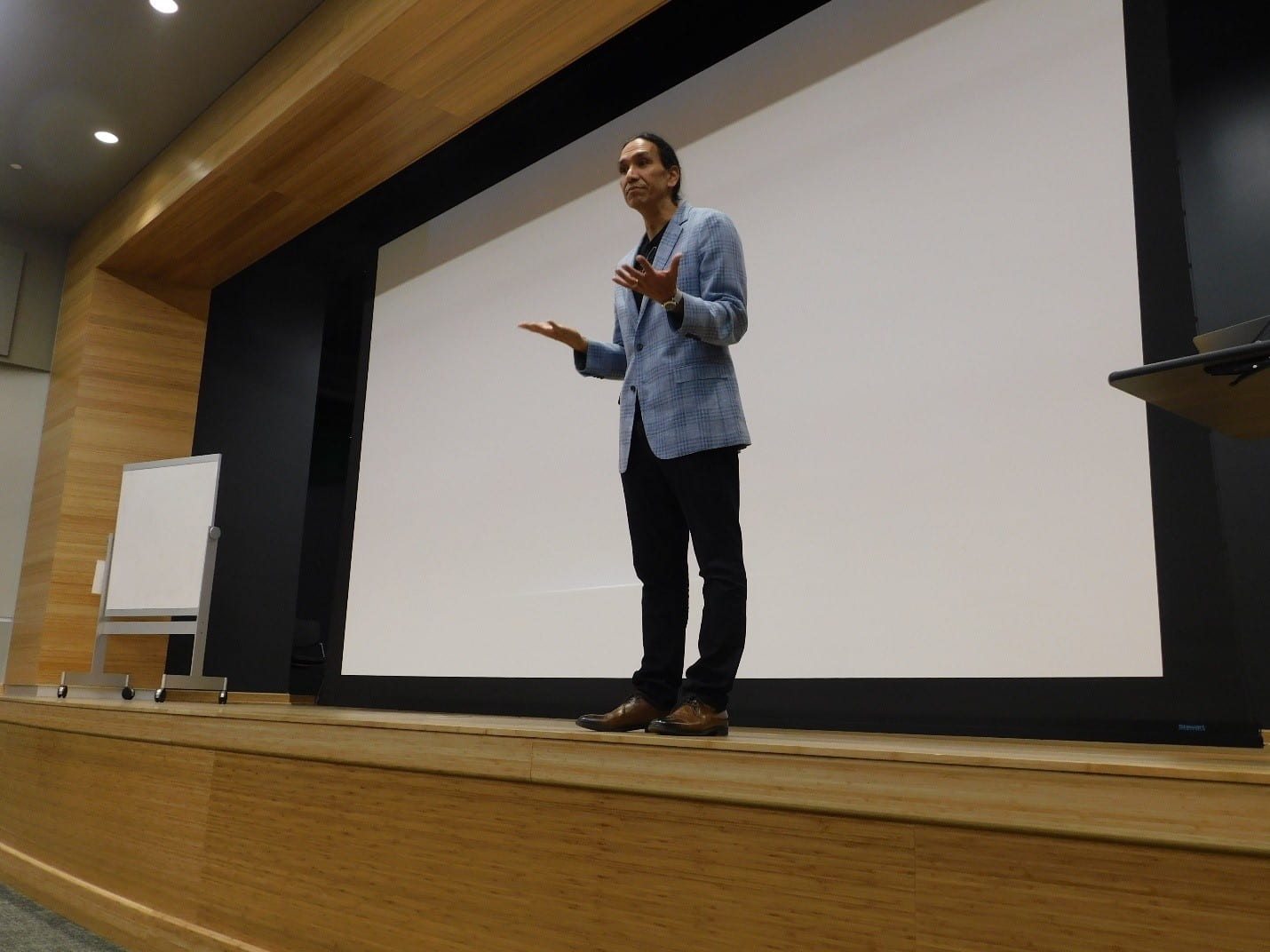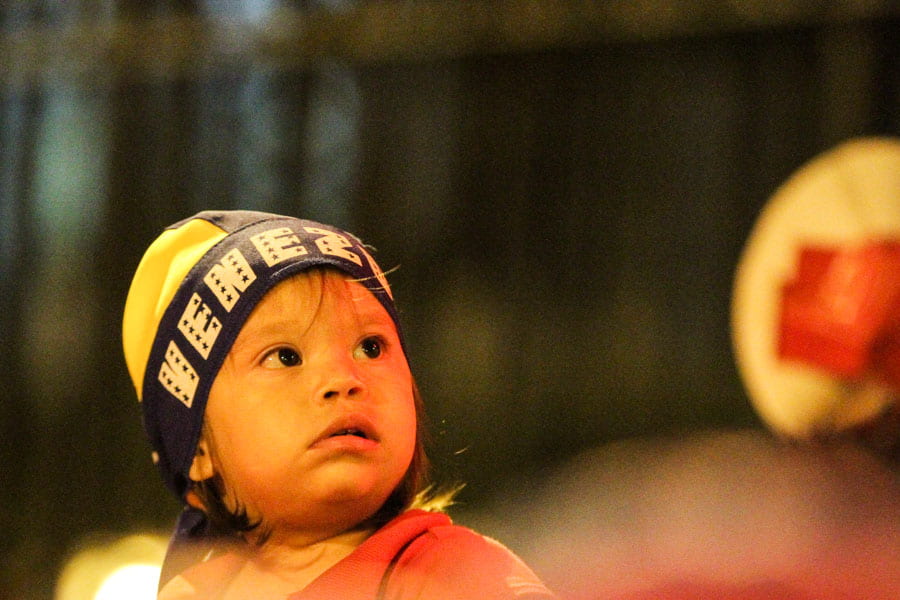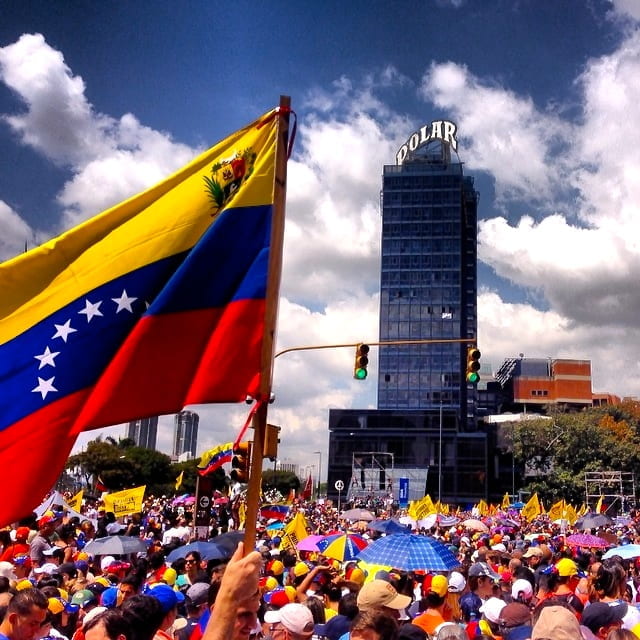On Tuesday, October 29th, the Institute for Human Rights co-sponsored an event alongside UAB’s College of Arts & Sciences and Department of Theatre to present indigenous actor, choreographer, director, and educator Michael Greyeyes. During his lecture and discussion with audience members, Greyeyes addressed issues such as the realities of being a stage performer, becoming a director, and indigenous representation in the media.
Greyeyes prefaced his lecture by acknowledging the original caretakers of the Birmingham area, namely the Chickasaw and Muscogee tribes. Following, Greyeyes began to mention a meeting he attended about “conflict”. He emphasized that conflict could elicit an array of emotions such as anger, frustration, and fear. However, he claimed that conflict is necessary, much like fire, because it burns away what is unnecessary.
Born and raised in Saskatchewan, a province of West Canada, Greyeyes moved to Toronto as a young man to work for The National Ballet of Canada. During this time, the company was resurging from its own series of ashes by elevating new leadership and young dancers. After his 4-year apprenticeship that took him around the world and back, Greyeyes had residencies as a performer in New York City, Pittsburgh, and Los Angeles. “Ever the migrant”, he exclaimed.
In Los Angeles, consumed by a restless artistic interest, Greyeyes took up acting. However, as a person of indigenous heritage, he often found himself disillusioned by being typecasted into roles such as “Native doctor” or “Indian lawyer”. Greyeyes then chose to continue his “re-education” by pursuing a Master’s in Fine Arts at Kent State University. Following, he was asked to take on a new role in the performing arts as a director. As a result, Greyeyes has found himself in the position to refine what it means to be a director at his non-profit, Signal Theatre, where he spends considerable time on development and training performers. Thus, the end-product becomes an intimate performance that is suited to resonate better with its audience.
Greyeyes closed his lecture by alluding to our political landscape with the Talking Head’s lyric “Same as it ever was” and suggested that, in times such as this, artistic creativity has the opportunity to challenge new conflicts by rising old memories from the ashes and expressing what we hold dear.

After his lecture, Greyeyes took questions and comments from the inspired audience. One person mentioned that conflict in their parent’s native land of Egypt raised parallels with what indigenous communities have endured through colonialism. Greyeyes responded by mentioning there are high numbers of indigenous soldiers in the armed forces and that he has even played this role on the big screen. Although, the families of these soldiers are the ones who must pick up the pieces. In response, Greyeyes created A Soldier’s Tale which is a passionate dance performance about veterans with post-traumatic stress disorder (PTSD).
He stressed that when non-indigenous people “write us” into the script, their perceptions come out and it generally doesn’t sound right. Thus, he expressed his most acclaimed role by the indigenous community was his True Detective performance as a solider shattered by the Vietnam War. Although, this character was not written in the storyline as a “Native solider” rather an everyday veteran that was given an indigenous perspective by Greyeyes himself. From the ashes to the stage.



